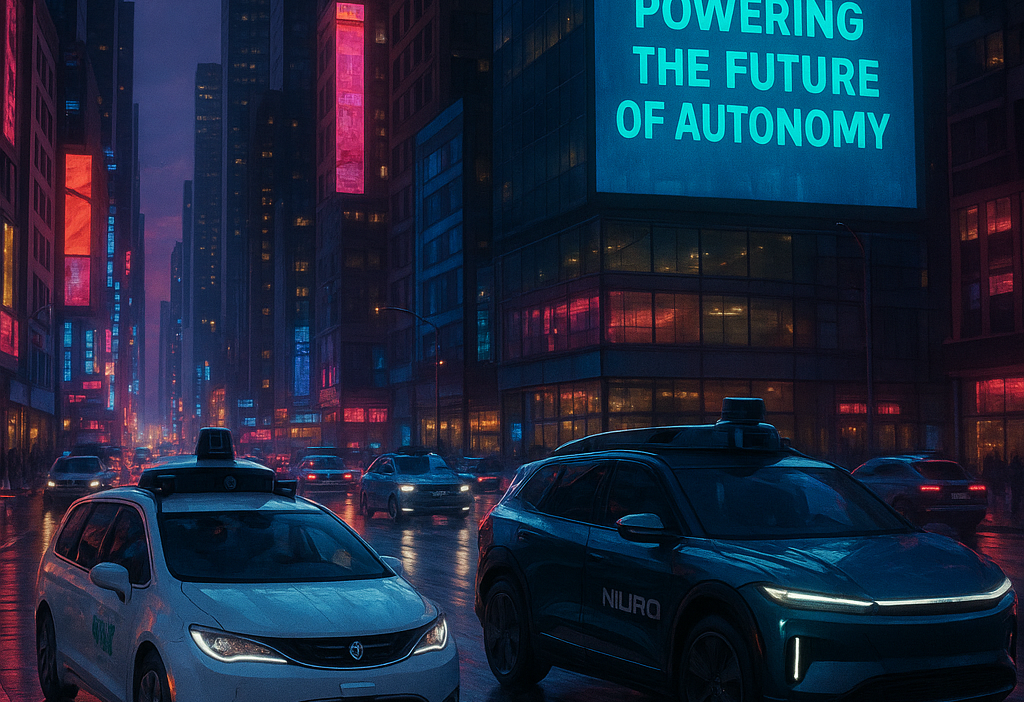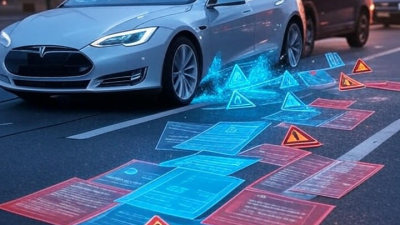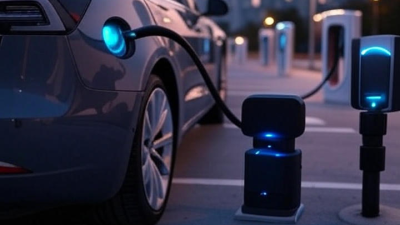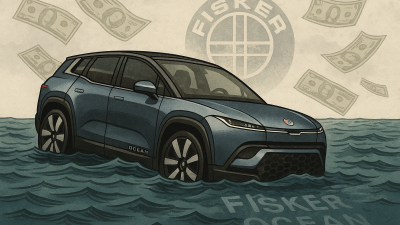Autonomous Vehicle Revolution
The autonomous vehicle (AV) industry is accelerating at an unprecedented pace, reshaping the future of transportation with cutting-edge AI and robotics. Two major players, Waymo and Nuro, have recently made headlines with significant developments that underscore their leadership in this transformative space. Waymo has secured a landmark permit to test its self-driving vehicles in New York City, marking a significant expansion into one of the world’s most complex urban environments. Meanwhile, Nuro has clinched a $203 million Series E funding round, backed by tech giant Nvidia, signaling strong investor confidence in its AI-driven autonomous technology. This article explores these pivotal milestones, their implications for the AV industry, and what lies ahead in the race for autonomous mobility.
Waymo’s Breakthrough in the Big Apple
Securing the NYC Testing Permit
Waymo, a subsidiary of Alphabet, has achieved a significant milestone by obtaining a permit to test its autonomous vehicles in New York City. This is the first such approval granted by the city, a notoriously challenging environment for self-driving technology due to its dense traffic, intricate road networks, and unpredictable pedestrian patterns. Waymo’s entry into NYC is a testament to its advanced Level 4 autonomy, which allows vehicles to operate without human intervention in specific conditions.
The company has announced plans to begin testing immediately, leveraging its extensive experience from operating robotaxi services in cities like Phoenix, San Francisco, and Los Angeles. With over 250,000 trips completed in its service areas, Waymo’s proven track record positions it as a frontrunner in the AV industry. The NYC testing phase will focus on refining its technology to handle the city’s unique challenges, such as navigating narrow streets, managing aggressive driving behaviors, and ensuring pedestrian safety in crowded areas.
Implications for Urban Mobility
Waymo’s expansion into New York City signals a bold step toward mainstreaming autonomous vehicles in urban settings. The permit allows Waymo to collect critical real-world data, which will enhance its AI algorithms and improve the reliability of its self-driving systems. Success in NYC could pave the way for broader commercial deployment, potentially transforming ride-hailing services and reducing traffic congestion in one of the world’s busiest cities.
Moreover, Waymo’s presence in NYC challenges competitors to accelerate their own urban testing efforts. The company’s ability to secure this permit highlights its regulatory expertise and commitment to safety, setting a high standard for others in the industry. As Waymo scales its operations, it could redefine urban mobility by offering a safer, more efficient alternative to traditional transportation.
Nvidia’s Strategic Bet on Nuro
A $203 Million Boost for Nuro
On August 21, 2025, Nuro, a Silicon Valley-based autonomous driving startup, closed a $203 million Series E funding round, valuing the company at $6 billion. This round, backed by heavyweights like Nvidia, Uber, Baillie Gifford, Icehouse Ventures, and Kindred Ventures, underscores Nuro’s growing influence in the AV sector. The funding, which includes a $97 million tranche following an initial $106 million in April, brings Nuro’s total capital raised to over $2.3 billion.
Nuro’s pivot from building delivery robots to licensing its AI-driven Nuro Driver™ technology has attracted significant investor interest. Unlike its earlier focus on low-speed electric vehicles like the R1 and R2 for cargo delivery, Nuro now emphasizes a vehicle-agnostic approach, integrating its Level 4 autonomous software into various platforms, from delivery vans to robotaxis.
Nvidia’s Role and Strategic Partnership
Nvidia’s investment in Nuro is particularly noteworthy, given its long-standing technical collaboration with the startup. Nuro’s latest compute module is built on Nvidia’s DRIVE AGX Thor platform, a powerful AI-processing system designed for autonomous vehicles. Additionally, Nuro utilizes Nvidia’s GPUs for large-scale data processing and model training, enhancing the efficiency and accuracy of its Nuro Driver™ system.
This partnership aligns with Nvidia’s broader strategy to dominate the AI and autonomous driving markets. By backing Nuro, Nvidia strengthens its position as a key supplier of AI hardware and software for the AV industry. The investment also signals Nvidia’s confidence in Nuro’s scalable business model, which focuses on licensing technology rather than operating capital-intensive vehicle fleets.
Nuro’s Partnership with Uber and Lucid
A key driver of Nuro’s recent success is its strategic partnership with Uber and Lucid Motors, announced in July 2025. Uber has committed $300 million to Lucid to deploy 20,000 Gravity SUVs equipped with Nuro’s autonomous technology for a global robotaxi service, set to launch in 2026. This collaboration leverages Uber’s ride-hailing platform, Lucid’s high-performance electric vehicles, and Nuro’s advanced AI to create a seamless, fully autonomous ride-hailing experience.
This partnership marks a significant shift for Nuro, expanding its scope from delivery-focused applications to passenger transport. By integrating its technology into Lucid’s luxury SUVs, Nuro aims to capture a share of the growing robotaxi market, competing directly with industry leaders like Waymo and Cruise.
The Broader Autonomous Vehicle Landscape
Industry Trends and Challenges
The AV industry is undergoing a transformative phase, with companies shifting from capital-intensive operations to more sustainable business models. Nuro’s pivot to licensing its technology reflects a broader trend, as startups seek to reduce costs and scale efficiently. This approach allows companies to integrate their software into existing vehicles, minimizing the need for proprietary fleets and enabling faster market penetration.
However, the industry faces significant challenges, including regulatory hurdles, high development costs, and public skepticism about safety. Nuro’s zero at-fault incidents across 1.4 million driverless miles demonstrate its commitment to safety, but scaling across diverse markets and vehicle types will require rigorous testing and regulatory approvals. Similarly, Waymo’s success in NYC will depend on its ability to navigate complex urban environments while maintaining its impeccable safety record.
Competitive Dynamics
The competition in the AV sector is fierce, with Waymo, Nuro, Cruise, and Tesla vying for dominance. Waymo’s lead in robotaxi miles and urban deployments gives it a first-mover advantage, but Nuro’s partnerships and licensing model position it as a versatile player. Tesla, with its upcoming Cybercab and plans for autonomous ride-hailing, adds further pressure, while Cruise continues to burn cash in pursuit of scale.
Nvidia’s investment in Nuro also highlights the growing importance of AI hardware in the AV race. As companies rely on advanced computing platforms to power their self-driving systems, Nvidia’s role as a technology enabler becomes increasingly critical. The interplay between hardware providers, software developers, and mobility providers will shape the industry’s future.
Future Outlook for Waymo and Nuro
Waymo’s Path to Dominance
Waymo’s NYC testing permit is a stepping stone toward broader commercial deployment. By refining its technology in one of the world’s most challenging urban environments, Waymo aims to solidify its leadership in the robotaxi market. The company’s focus on safety, scalability, and regulatory compliance positions it well for future expansion, potentially integrating its services with platforms like Uber to reach a wider audience.
Nuro’s Scalable Vision
Nuro’s $203 million funding round and strategic partnerships set the stage for significant growth. The company’s vehicle-agnostic approach allows it to target multiple markets, from delivery to ride-hailing. Its collaboration with Uber and Lucid, combined with Nvidia’s technical support, positions Nuro to challenge established players. The planned 2026 robotaxi rollout will be a critical test of Nuro’s ability to deliver a safe, reliable, and scalable autonomous experience.
The Road Ahead
The autonomous vehicle industry is at a pivotal moment, with Waymo and Nuro leading the charge toward a driverless future. Waymo’s Big Apple win demonstrates its ability to tackle complex urban environments, while Nuro’s funding and partnerships highlight its innovative approach to scaling autonomy. As these companies push the boundaries of AI and robotics, they are redefining transportation, promising safer roads, reduced congestion, and new economic opportunities.
Waymo’s permit to test in New York City and Nuro’s $203 million funding round, backed by Nvidia, mark significant milestones in the autonomous vehicle industry. These developments underscore the rapid progress in AI-driven mobility and the fierce competition to dominate the market. As Waymo navigates the streets of NYC and Nuro prepares for its robotaxi rollout, the race for autonomous driving supremacy is heating up, with profound implications for the future of transportation.



